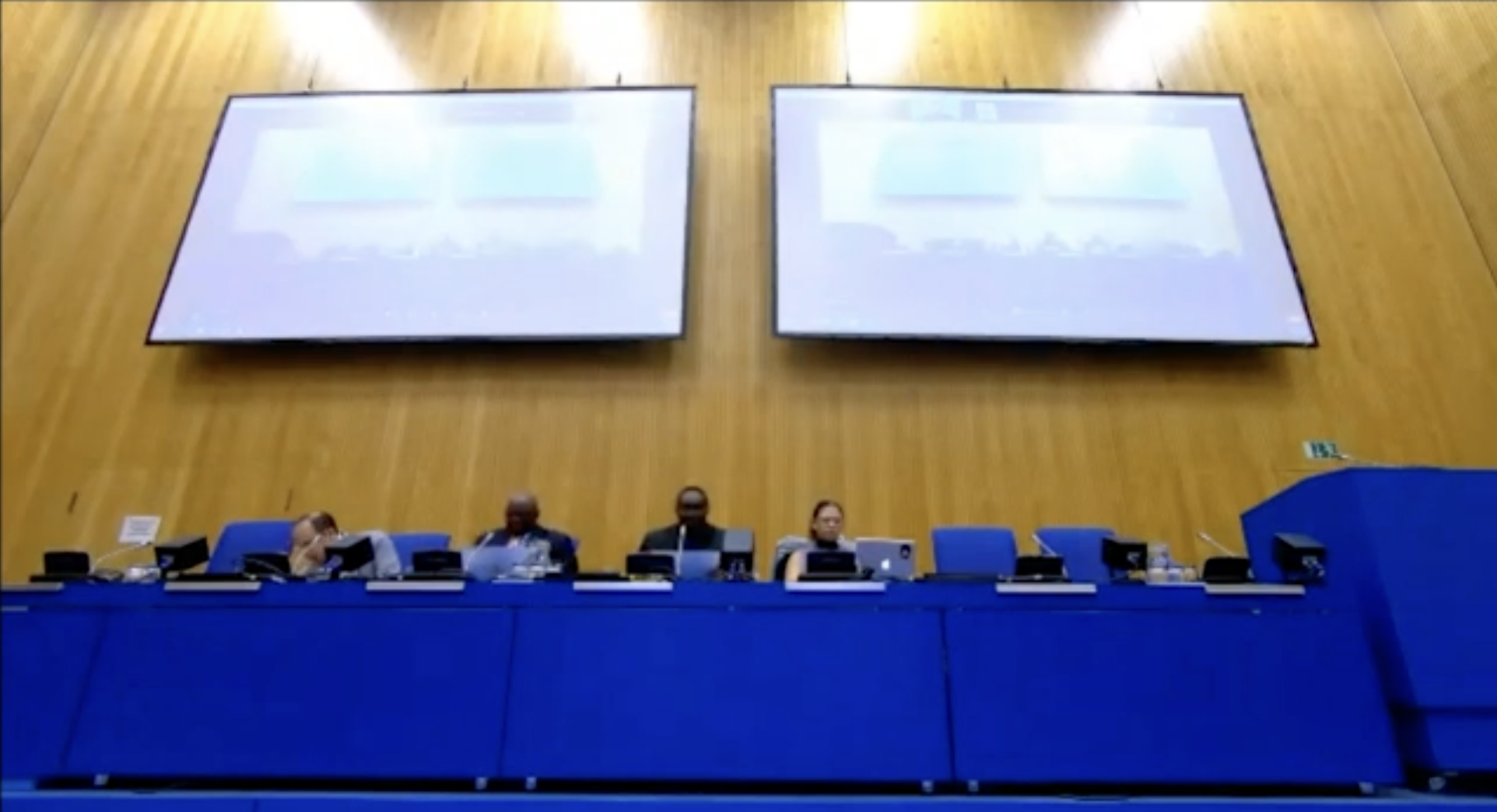On May 22-26, members of the Campaign attended the 32nd session of the UN Commission on Crime Prevention and Criminal Justice (CCPCJ), which is the principal policymaking body of the United Nations in the field of crime prevention and criminal justice. In the months leading to the session, Campaign members worked tirelessly to push for the tabling of a resolution calling for the establishment of an expert committee on the criminalization of poverty and status, which would direct States to review their laws, policies and practices discriminating against people based on their economic, political and/or social status, or their activism.
At the session, Canada sponsored a resolution on equal access to justice for all, which included a recommendation to convene an expert meeting to share information on challenges, lessons learned, best practice and enabling factors needed to ensure equal access to justice. During the negotiations, which unfolded throughout the week, in both closed (‘informal’) and official formats, campaign partners, ILF and PRI were instrumental in chasing down State representatives and referencing the Cape Declaration to influence the content of the resolution and push for its adoption, notably securing strong support from South Africa and Brazil and liaising closely with Canada and the United States, among many other Member States.
Alongside the session, campaign members ILF, PRI, Amnesty International, ICJ-Kenya, APCOF, IDPC and OSF co-organized a hybrid side event on ‘Justice for All: Global action to combat discrimination and inequality in criminal justice systems’, on behalf of the Campaign, where panellists included representatives from the US department of justice, South African high court, Brazilian ministry of justice, the UN Working Group of Experts on People of African Descent, the UN Special Rapporteurs on the right to adequate housing and extreme poverty, the Office of the High Commissioner for Human Rights, and ICJ-Kenya. All the speakers emphasized the impact of discriminatory laws, policies and practices on marginalized communities, including racial and ethnic minorities, women, people who use drugs, and people living in poverty and referred to the draft resolution on access to justice and the importance of creating an expert committee with civil society representation to address inequality in criminal justice systems. Several member States attended the event, contributing to the eventual adoption of the resolution, as well as a commitment from Canada and other resolution co-sponsors to ensure the establishment of an inclusive expert group meeting.
The CCPCJ will now recommend approval of the resolution to ECOSOC, for its adoption by the UN General Assembly. This encouraging win means campaign members can now shift their focus to influencing the composition, location, and mandate of the expert group, to ensure it is as inclusive as possible, and meaningfully addresses widespread discrimination and inequality in criminal justice systems.


